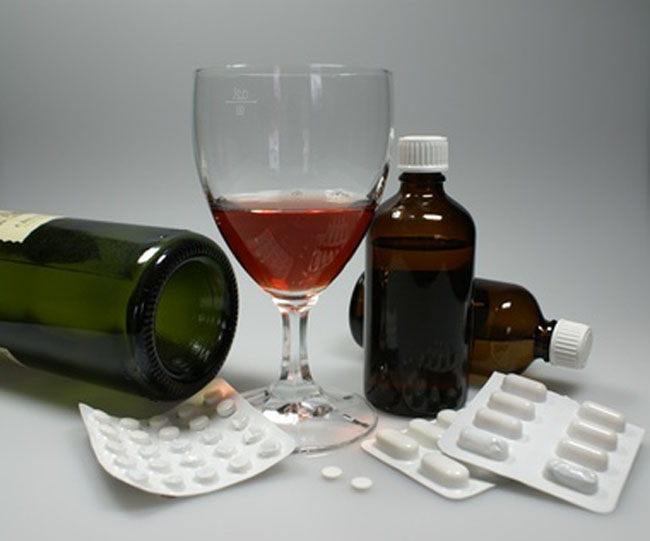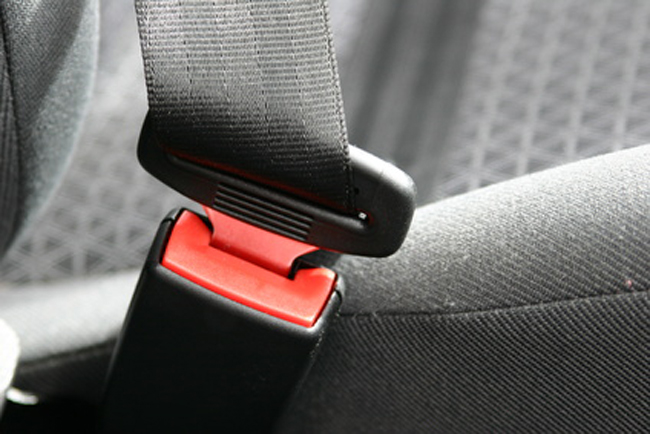Finally! All your hard work has led to this day. You studied and practiced and learned all you could about responsible driving. Took the driver’s test, and passed it with ease. And now – you have that laminated card that proves that you, too, have joined the ranks of licensed drivers. You are “street legal”.
You deserve to feel good about yourself. Celebrate, even. But here’s something to think about:
• Teen deaths in automobile accidents have climbed to over 5,000 per year. This statistic involves teens from age 16 to 20 years old. The number of teens this age who sustain serious injuries is substantially more – around 400,000.
• There’s a greater risk to kids 16 to 19 than other age groups – the chance that this group will be in an accident is four times greater than other age groups.
• Twelve percent of fatal accidents in the U.S. involve teens, who make up only ten percent of the population. Male teen deaths are almost twice that of girls.
• New teen drivers are much more at risk the first year they get their license.
To improve these odds in your favor, you should take the following to heart:
• Be aware of the risks for new drivers. You’re still inexperienced in everyday driving and dealing with emergency situations that can crop up without warning. Overconfidence, coupled with a need to show off and impress your friends, can lead to disaster. Distractions like cell phones and laughing, exuberant friends may cause your attention to waver at the worst possible moment.

• Speed is the number one cause of teen accidents. Lightening up on that accelerator saves lives.
• Like the captain of a ship, you should have full command of your vehicle. Make sure your passengers understand this. The ultimate responsibility is yours.
• You’ve eagerly anticipated the freedom that comes with acquiring your driver’s license. Remember, it’s a privilege, not a right, and can be revoked if you don’t have the maturity to handle the responsibility that comes with it.
• Drivers who have taken driver education courses may be subject to reduced premiums on their insurance. Check with your provider. Also, if you have a “B” average, ask for the good student discount.
• The first six months – or, better yet, the first year – of your driving life should be just that. Yours. This is the time to become familiar with highway driving, get used to your car, and fine-tune your abilities. Don’t let anyone ride with you, especially your school friends, during this “get acquainted” period.
• Remember that one year of driving under a learner’s permit followed by a brief written test and steering your car slowly through a course of cones in a parking lot does not make you a driver. Only experience handling a variety of highway situations will give you the confidence and the ability to handle any scenario reality throws at you.
• Cut out the distractions. A group of rambunctious friends acting up, making and taking cell phone calls, eating and drinking – all these and more can cause a potentially fatal lapse of concentration at a critical time. Make sure friends understand your rules for rides.
• If you must make a cell phone call, pull off the road first. Never answer your phone while driving.
• If you drop something, pull over before trying to fish it from the floorboard. One glance away from the road, one lapse of concentration, can be enough to cause you to lose control.
• Use a phone equipped with caller identification or call forwarding. You can forget answering it while driving, secure in the knowledge that when you arrive safely at your destination you can check the phone and know who called you. After all, is the latest gossip really that important? Really?
• Pull well off the road before attempting to change a flat. Turn on your flashers. If the flat occurs on the left (drivers) side of your car, make sure you have sufficient room between you and oncoming traffic before trying to change the tire. On an expressway, it might be better to wait for help, or call your auto club.

• If you have an accident, or the blue lights come on behind you, STOP! It will be much worse if you leave the scene, or try to evade the police.
• Replace faulty tail lights, head lights or brake lights immediately. Keep up with routine maintenance of critical systems like brakes, steering and transmission.
• Any driver worth his salt knows not to get behind the wheel after drinking. A less known danger, however, is driving on too little sleep. Make sure you get adequate rest before a trip to ensure you don’t wind up in an accident. If you feel sleepy, pull into a parking lot or a rest stop area. Get out, take a brisk walk, stretch, and get the blood flowing. Take a few deep breaths. If you’re still tired after you resume driving, stop at a motel and get some sleep. It’s better to arrive late than arrive dead.
• You can experience what it’s like to operate a vehicle under the influence without the actual drunk driving (and subsequent arrest for same). If your local resource officer has the capability, ask to try out the “drunk glasses”. They’re goggles that, when worn, simulate an intoxicated state, creating disorientation, dizziness, and balance problems similar to drunkenness. This is an eye-opener. It graphically demonstrates how a person reacts when under the influence.
• S.A.D.D. (Students Against Destructive Decisions) offers another drunk driving simulation: the Safety Bug. It’s a Volkswagen Bug that’s been converted to mimic a driver’s performance when under the influence.
• Draw up a contract with your parents. In it, you pledge never to drive under the influence of drugs or alcohol, and to call your parents, a friend, or a cab to pick you up if you’ve been drinking. Your parents pledge to not harass or question you about why you were drinking in the first place. This depends on total trust and respect between you and your parents, but the protection and peace of mind it offers all of you is well worth it.
• Create an incentive to go accident free. Ask your parents for a prize if you go a year without an accident or a violation. The prize could be money, a down payment on a new (safer) car, or a trip somewhere you’ve always wanted to go. The prize can increase in value for every year you go without having a wreck or getting a citation.
• Control any urges you might have to show off in an automobile. Drag racing, squealing tires, cutting circles – these are all actions based on transitory emotions and a desire for status, pride, or just to be noticed. Potential consequences are not worth it. Remember, when behind the wheel, you are responsible. Period. No excuses.
• Drive defensively. Watch out for the other guy, and try to anticipate what he’s going to do. Let him have the right-of-way if he insists on it. The highway is no place to stake a territorial claim. You’re trying to get from point A to B, that’s all.
• Have your parents ride periodically with you for a year or so, with the express intent of evaluating your driving. It also gives you a chance to show them that you know what you’re doing.
• Remember, when you have a child riding with you, an appropriate child safety seat is required by law.

• Folks grow up, live and learn to drive in all areas of the country. When weather conditions change drastically from what they’re used to, they may have trouble adjusting. In the south, ice and snow cause a lot of problems; out west, flash flood conditions do the same. Be sure you can handle any weather condition that comes your way. And be sure you know when conditions are beyond your abilities – and stay home.
• Factors endangering young drivers: inexperience; bravado; speeding and racing; drugs and alcohol; no seatbelts; choice of vehicle; too many passengers.
• Plan ahead. Accidents often result from inconspicuous beginnings. You misplace your keys, spend 10 minutes frantically looking for them, rush to the car, speed to school (you’ve got to make it, you’ll be late!). Your mind’s on that algebra test, or the fight you had with your girl or boy friend the night before, when…WHAM! You’ve had an accident.
• Know yourself. Try to recognize when your youthful exuberance, joy of life, playfulness, sense of adventure, or pride, coupled with inexperience, might possibly get you into trouble on the highway. Nothing you might want to do with your car is worth another person’s life, or the ruining of yours. It’s very easy to commit to a course of action. Once initiated, it may not be so easy to get out of a bad situation resulting from faulty judgment. Remember, accidents don’t just happen. They result from incremental small decisions or lapses in concentration that lead up to the end, often tragic, result. Highway driving is not a contact sport.
Your driver’s license opens up whole worlds of freedom and opportunity. You’re no longer dependent on your parents to get around. This is one of your first steps towards personal independence, but it comes with the price of diligence and responsibility. If you drive recklessly, speed, or operate a vehicle under the influence, you can lose more than your license. You can lose that hard-won freedom. You can also lose your life.
So have fun with your new-found freedom, but drive responsibly. Don’t let your first helicopter ride be a life flight.
Your first time behind the wheel can be intimidating. All those unfamiliar knobs and switches remind you of an airplane cockpit. And now you’re expected to take the wheel in your hands and actually control this monster? If you weren’t at least a bit nervous, you wouldn’t be human. You can harness your anxiety and …
Saving gas by driving might seem like a contradiction, but how you drive can affect the amount of gas you use. There are many simple things you can do that will reduce the amount of gasoline your car uses, which in turn will save you money. 1. Do not allow your car to warm up …
Taking your car out on the highway is much different from practicing in your driveway or in a safe venue like an empty parking lot. Leave the nest behind and all kinds of things can happen. You’re subjected to stimuli from all sides. You realize that there’s real traffic out there. You have to navigate …